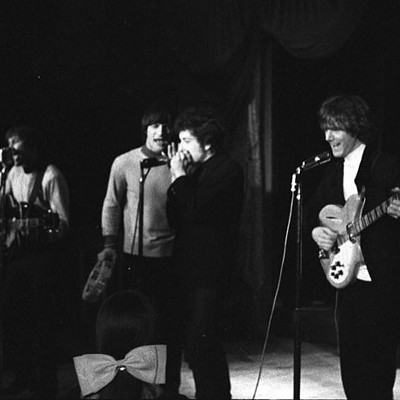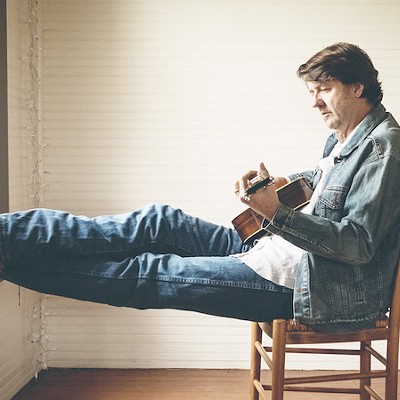When Elvis Presley came into Memphis' Stax Studios in December 1973 to cut some new material, Norbert Putnam -- the experienced Muscle Shoals-born session bassist -- could tell that something was off about the King.
"He had gained a bit of weight, I noticed. And he had gone through the divorce with Priscilla," Putnam recalls. "But he was definitely there to work. And this guy could do anything vocally. He could croon with Sinatra or scream with Little Richard."
REWIND:
Elvis's Bassist Recalls Stax Sessions, One Song The King Couldn't Finish
Still, the thing that Putnam says he admired most about Presley -- then and now -- was his intelligence. especially when it came to human emotions.
All of the 28 masters that Presley and his backing musicians recorded in July and December 1973 sessions -- along with multiple outtakes and alternate cuts -- are on the new 3-CD compilation Elvis at Stax: Deluxe Edition (RCA/Legacy).
Putnam played on the December sessions, which yielded material higher in quality and quantity than the July one. He says that the musicians never had any sheet music to refer to, and instead would each scratch down keys, chords, and changes on legal pads while a demo recording played in the studio. Somehow, they managed to find the right groove in short order.
And while the songs dribbled out over several LPs and singles over the next few years, it didn't provide Elvis with the commercial comeback he had hoped for.
"It didn't have a lot of chart activity at the time and that's a shame," Putnam says today. "But people have clamored for this material. When I play with the TCB Band and we go to Europe and South America, they are yelling for [the Stax] material. Those records were more popular there than in the states. I think Elvis was more appreciated around the world than he was in America."
The "TCB Band" Putnam refers to is the occasional still-touring stage show in which many of Elvis' former band and revue members play live music to the accompaniment of Elvis singing the same song on filmed concert footage that plays on a huge video screen (can the Elvis hologram be far off?).
Which, of course, makes blindingly obvious the obvious - live people are playing with movies of a dead man. Elvis' drug-and-obesity induced death in 1977 at the age of 42 has been overly documented so as not to bear repeat here. But - feasibly, had he not succumbed to his own self-destruction - could Putnam & Co. have played in 2013 with a 78-year-old Elvis?
After all, Chuck Berry, Little Richard, Jerry Lee Lewis, B.B. King, and others are still going. And septuagenarians Mick Jagger and Paul McCartney are still fronting two- and three-hour shows. And with 1973 being a crucial year, could Putnam or any other players have saved Elvis?
"Of course, I've thought about it a lot over the years. A lot. I was shocked when he died," Putnam reflects today. "But you have to remember that we saw him in a recording environment. I've known musicians who were drunk and stoned and crazy on the road or [at their houses], but when they came into the studio, they were ready for business. They all knew that it would be the recordings that would survive us all."
However, Putnam points to one man who could have -- should have -- seen the warning signs and done something about it but didn't: Elvis's manager/Svengali, Col. Tom Parker.






